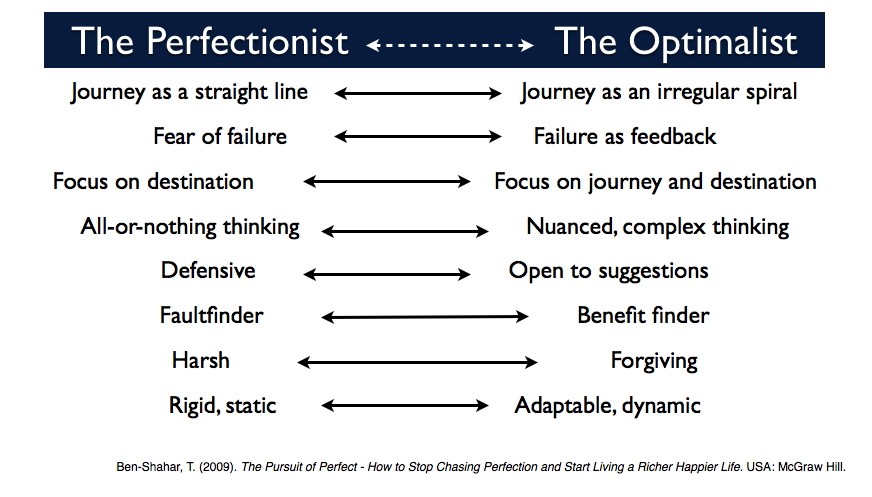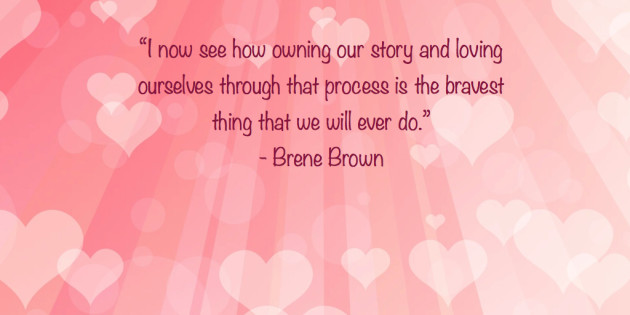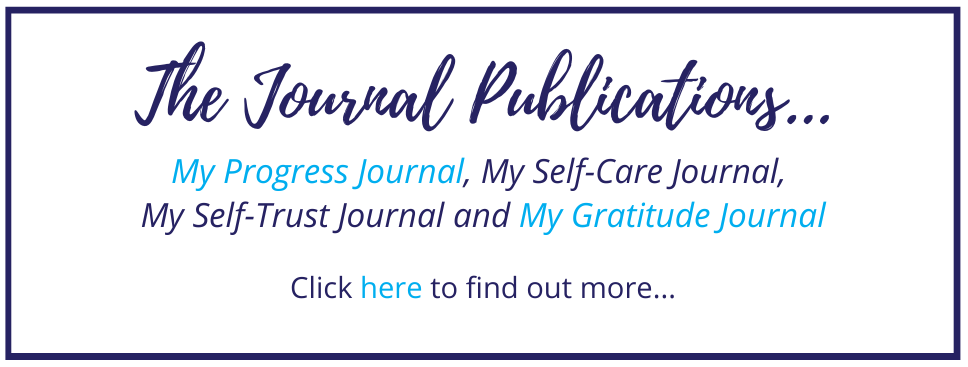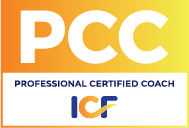Is Perfectionism Getting in the Way of Your Life?
It was for me…
Growing up and early in to my adult life, one thing I wanted was for everything to be perfect (yes, have all of the ducks in a row). I had a very strong inner critic and subsequently, I was quite fearful of making mistakes, failing and being fully seen in my vulnerabilities. I had many associations in my mind about failure and wrote a post about my experience of learning to be with the fear of failure.
Hindsight is a beautiful thing and I can see now I had distorted thinking and very deep unresolved emotions and vulnerabilities (e.g. shame) linked to failure, perfectionism and of not being worthy or ‘good enough’ from different experiences growing up.
Fortunately, the gift of life and some great mentors/coaches in my life supported me through some extremely challenging times. One thing I can now see is, it wasn’t failure as such I was fearful of, it was my thinking, feelings and meaning I had created around it and I needed to find the courage to just be myself (with all my imperfections).
“I am careful not to confuse excellence with perfection. Excellence I can reach for; perfection is God’s business.” ~ Michael J. Fox
The Perfectionist and The Optimalist
A few years ago, I came across the book The Pursuit of Perfect: How to Stop Chasing Perfection and Start Living a Richer, Happier Life by Tal Ben-Shahar. I could relate to his story on a few levels as Tal was a squash player (and I was a tennis player) who was very driven and when he got injured, took that drive in to the world of academia (which was similar to what I did, however I chose not to finish my PhD).
In Part 1 of the book called accepting failure, Tal refers to Perfectionism and Optimalism and the essential differences between these two. He says that “No person is 100% a perfectionist or 100% an Optimalist. Instead, we think of perfectionism and optimalism as lying on a continuum, and each of us tends to a lesser or greater degree to one end or the other of the continuum.” (p.7).
Ben-Shahar goes on to say “…we may be Optimalists in some areas of our lives and Perfectionists in others.” An example of this may be we may be quite forgiving of mistakes of ourselves or others in our workplace, however when our expectations are not met in a relationship we could become quite anxious. According to Ben-Sharar “…the more a Perfectionist cares about something, the more he is likely to approach it with the Perfectionist’s particular mind-set.” (p.8).
Following are the characteristics of the Perfectionist and the Optimalist that are referred to in the book The Pursuit of Perfect–

It is important to note that perfectionists don’t have to exhibit all of these qualities or have these qualities the same in every situation. However, according to Ben-Shahar the more people –
“…exhibit these qualities the higher their susceptibility to a range of disorders, problems, and challenges associated to perfectionism.” (p.19).
Reflection –
- Can you relate to any of these characteristics?
- If so, how do any those characteristics currently effect your life? Are there any consequences?
- What can you choose to do now that you are aware of how these characteristics are effecting you?
If you are ready to reclaim your courage and take the next step towards freedom and opening your heart, why not join our Toolkit?
Reference –
Ben-Shahar, T. (2009). The Pursuit of Perfect: How to Stop Chasing Perfection and Start Living a Richer, Happier Life. USA: McGraw Hill.

















11 Comments
[…] http://www.habitsforwellbeing.com/is-perfectionism-getting-in-the-way-of-your-life/ […]
[…] Make ecological mistakes and let go of perfectionism […]
[…] trying new things. I also thought that if I did everything people expected of me, life would be perfect (that didn’t happen and I now choose a different journey and am getting to know my true […]
[…] As a recovering perfectionist, there are many personal reasons, why it is Excellence vs Perfection, but let’s start with some definitions to start the differentiation process between […]
[…] go of perfectionism and have the courage to be […]
[…] what personal effectiveness and self-management are, however have we mastered it (without being perfect of course)! So, just so we are on the same page […]
[…] didn’t come here to be perfect. You already are. You came here to be gorgeously human. Flawed and fabulous. And then to rise again […]
[…] This took me a while to get used to “in the real world”, because like many people, I have perfectionistic traits! I was alright when I was playing tennis as I would make quite a few mistakes in a match and […]
[…] Reality: Everyone is worthy of compassion – as we have all made mistakes, no one is perfect. […]
[…] have life perfect. […]
[…] Cultivating Self-Compassion: Letting Go of Perfectionism […]
Leave A Response